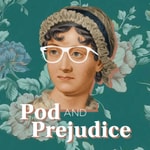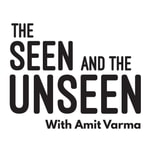Composers Datebook – Détails, épisodes et analyse
Détails du podcast
Informations techniques et générales issues du flux RSS du podcast.

Composers Datebook
American Public Media
Fréquence : 1 épisode/1j. Total Éps: 30

Classements récents
Dernières positions dans les classements Apple Podcasts et Spotify.
Apple Podcasts
🇺🇸 États-Unis - musicHistory
29/06/2025#87🇺🇸 États-Unis - musicHistory
05/04/2025#80🇺🇸 États-Unis - musicHistory
11/03/2025#85🇨🇦 Canada - musicHistory
06/02/2025#95🇺🇸 États-Unis - musicHistory
29/12/2024#95🇺🇸 États-Unis - musicHistory
28/12/2024#66🇺🇸 États-Unis - musicHistory
27/12/2024#41🇺🇸 États-Unis - musicHistory
09/12/2024#81🇺🇸 États-Unis - musicHistory
27/11/2024#94🇺🇸 États-Unis - musicHistory
26/11/2024#74
Spotify
Aucun classement récent disponible
Liens partagés entre épisodes et podcasts
Liens présents dans les descriptions d'épisodes et autres podcasts les utilisant également.
See allQualité et score du flux RSS
Évaluation technique de la qualité et de la structure du flux RSS.
See allScore global : 53%
Historique des publications
Répartition mensuelle des publications d'épisodes au fil des années.
Hovhaness reaches No. 65
dimanche 6 octobre 2024 • Durée 02:00
On today’s date in 1991, the American Composers Orchestra gave a concert at Carnegie Hall, celebrating the 80th birthday of Armenian-American composer Alan Hovhaness. Hovhaness was on hand, and conducted the world premiere performance of his Symphony No. 65.
By the time of this death in 2000, Hovhaness had composed 67 symphonies, and ranks as one of the most prolific composers of symphonies in the 20th century.
“I write too much, far too much,” he once wrote to a friend. “This is my insanity.” Even so, performers and audiences seemed to respond to the emotional forthrightness of his music.
Hovhaness rejected the mid-20th century trends towards complexity and atonality, and instead turned to archaic and Eastern musical models. Many of his works were inspired by Armenian themes, real or imagined.
In reviewing the premiere of his Symphony No. 65, the New York Times critic wrote, “Mr. Hovhaness seems to have used liturgical roots to create his own imaginary Armenia, a music that may exist only in [his] imagination.”
Music Played in Today's Program
Alan Hovhaness (1911-2000): Symphony No. 2 (Mysterious Mountain); Chicago Symphony; Fritz Reiner, conductor; RCA 61957
The New York Philharmonic on the air
samedi 5 octobre 2024 • Durée 02:00
If, on today’s date in 1930, you happened to be flipping through the pages of the New York Times, you would have seen several ads for radios, including one that argued that purchasing a radio was a good investment.
This was only one year after the infamous 1929 stock market crash, so New Yorkers might have been a little leery of investing in anything, and disposable income for most Americans was severely limited during the Great Depression that followed.
Still, that same October 5 edition of the Times announced that the New York Philharmonic would commence live nationwide broadcasts of its Sunday afternoon concerts that very day, with visiting German conductor Erich Kleiber leading the orchestra. The rest of the Philharmonic’s 1930-31 season, led by the orchestra’s new music director, Arturo Toscanini, would also be broadcast live on subsequent Sunday afternoons.
For music lovers, that radio purchase started to look like a pretty good investment after all.
And over the following decades, in addition to Bach, Beethoven, and Brahms, the New York Philharmonic’s radio audiences coast-to-coast were introduced as well to new works of American composers like Roy Harris, Aaron Copland, Samuel Barber, Leonard Bernstein and Ellen Taaffe Zwilich.
Music Played in Today's Program
Wolfgang Mozart (1756-1791): Symphony No. 39; New York Philharmonic; Leonard Bernstein, conductor; Sony 60973
Roy Harris (1898-1979): Symphony No. 3; New York Philharmonic; Leonard Bernstein, conductor; Sony 60594
William Billings
jeudi 26 septembre 2024 • Durée 02:00
On today’s date in 2000, King’s Chapel in Boston presented a festival of music by the early American composer William Billings, honoring the 200th anniversary of his death in 1800. As the Chapel’s records of 1786 stated, Billings taught singing “to such persons of both sexes as incline to sing psalm-tunes.” They must have liked him, because in 1790, when Billings was in financial trouble, the Chapel held a benefit concert for him.
When Billings was born in 1746, America was still a British colony. The last record we have of him as a composer dates from 1799, when he wrote music for a memorial concert for George Washington, the first president of the United States, who had died in December of that year.
Today, Billings is regarded as America’s first truly original composer. His contemporaries agreed. The Reverend William Bentley of Salem was moved to write in his diary: “Many who have imitated him have excelled him, but none had better original powers … he was a singular man, short of one leg, with one eye, and with an uncommon negligence of person. Still, he spake and sung and thought as a man above common abilities.”
Music Played in Today's Program
William Billings (1746-1800): Emmaus and Shiloh; His Majestie's Clerkes; Paul Hillier, conductor; Harmonia Mundi 90.7048
Hindemith's 'Kammermusik' No. 4
mercredi 25 septembre 2024 • Durée 02:00
In the 1920s, German composer Paul Hindemith wrote a set of seven concertos, which he collectively titled Kammermusik or Chamber Music. This generic title was part of Hindemith’s goal to foster a more “objective” musical style, modeled on 18th century composers like J.S. Bach.
Hindemith’s Kammermusik No. 4, a work for solo violin and chamber orchestra, had its first performance in Dessau on today’s date in 1925. The soloist was Licco Amar, the first violinist of the Amar String Quartet, an ensemble in which Hindemith played viola.
Hindemith’s father had been killed in World War I, and Hindemith himself had been called up, but avoided being sent to the front by forming a string quartet that played nightly to ease the nerves of his commanding officer. Then during the World War II, despite being considered a so-called “Aryan” composer, Hindemith fell out of favor with the Nazi regime and eventually emigrated to America, where he became a very influential teacher.
To address the role of music in society, Hindemith suggested composers should revive the idea of writing works amateur musicians could play at home with family and friends.
“People who make music together cannot be enemies,” he observed, “at least while the music lasts.”
Music Played in Today's Program
Paul Hindemith (1895-1963): Kammermusik No. 4; Konstanty Kulka, violin; Concertgebouw Orchestra; Riccardo Chailly, conductor; London 433 816
Andrzej Panufnik
mardi 24 septembre 2024 • Durée 02:00
Today’s date in 1914 marks the birthday of Polish-born composer and conductor Andrzej Panufnik, whose life was dramatic — and romantic — enough for a Netflix mini-series.
It involved resisting the Nazis in war-torn Warsaw, struggles with the Communist Party in the post-war years, a daring Swiss escape to Great Britain worthy of a John Le Carré novel, love affairs and marriages with beautiful women, the tragic death of one of his children, and long years trying to balance the demands of his conducting and composing careers. And, despite the admiration of some of the biggest names in classical music, for years his music met with indifference from the general public.
But at this point in the mini-series, cue the triumphant grand finale soundtrack theme. In the closing decades of his life, Panufnik won increasing recognition as one of the 20th century’s finest composers and was showered with high-profile commissions by major orchestras around the world.
Panufnik refused to return to Poland until democracy was restored in 1990. Shortly before his death in 1991, he was knighted by Queen Elizabeth II, and posthumously awarded the Polonia Restituta Medal by his native land.
Music Played in Today's Program
Andrzej Panufnik (1914-1991): Old Polish Suite; Polish Chamber Orchestra; Mariusz Smolij, conductor; Naxos 8.570032
Vincenzo Bellini
lundi 23 septembre 2024 • Durée 02:00
It was on today’s date in 1835 that Romantic opera composer Vincenzo Bellini died at a country home near Paris. He was only 34 but had achieved great fame in his brief lifetime.
The long, elegant melodic lines Bellini spun out in his operas were much admired and proved to be a major influence on the solo piano works of his contemporary, Frederic Chopin.
Bellini’s first success was Il Pirata or The Pirate from 1827, and just three years later, he could truthfully report: “My style is now heard in the most important theatres in the world …and with the greatest enthusiasm.” He settled in Paris, where his final opera, I Puritani di Scozia or The Puritans of Scotland premiered early in 1835.
If Bellini’s life had followed the Romantic story-lines of his operas, he would have been a dispossessed outcast who dies for love. In fact, Bellini was financially successful, moved in the highest social circles, and — rather than dying for love — was planning to marry for money at the time he succumbed to chronic gastroenteritis.
At his requiem mass, four leading composers of his day, Paer, Cherubini, Carafa and Rossini, each held a corner of the coffin shroud.
Music Played in Today's Program
Vincenzo Bellini (1801-1835): Sinfonia from Il Pirata; German Opera Orchestra, Berlin; Marcello Viotti, conductor; Berlin Classics 11152
Korngold makes a Snowman
vendredi 4 octobre 2024 • Durée 02:00
On today’s date in 1910, a young Austrian composer had his first major work staged at the Vienna Court Opera. It was quite a prestigious affair, all in all, with the Vienna Philharmonic in the pit and none other than Franz Josef, the Austrian Emperor, in the audience.
All that was enough to go to any young composer’s head — and the composer in question, Erich Wolfgang Korngold, was very young indeed. He was 13 when his ballet-pantomime The Snowman premiered in Vienna. Actually, he’d written the piano version of The Snowman in 1908, when he was 11. Korngold’s teacher, composer Alexander von Zemlinsky, orchestrated the piece for the Vienna Court Opera performance, but it wasn’t very long before little Erich was preparing his own orchestrations, thank you very much.
By his 20s, Korngold was celebrated throughout Europe as composer of operas and concert hall works. Korngold settled in Hollywood in the late 1930s, as his Jewish heritage made a career in Nazi Europe impossible. His film scores for classic Errol Flynn adventure movies — “SVASH-boo-klers” as Korngold called them in his thick Viennese accent — made him famous in America.
Music Played in Today's Program
Erich Wolfgang von Korngold (1897-1957): The Snowman; Northwest German Philharmonic; Werner Andreas Albert, conductor; CPO 999 037
Erich Wolfgang von Korngold (1897-1957): Violin Concerto; Chantal Juillet, violin; Berlin Radio Symphony; John Mauceri, conductor; London 452 481
Copland's 'Duo'
jeudi 3 octobre 2024 • Durée 02:00
One of the last chamber works by American composer Aaron Copland received its first performance on today’s date in 1971 in Philadelphia as a benefit for that city’s Settlement Music School. Copland was present for the premiere of his Duo for flute and piano. The work was commissioned by friends and students of William Kincaid, who had been the principal flutist of the Philadelphia Orchestra for many years.
By 1971, thorny, complex, and atonal music was the fashion in both Europe and America. Copland, for his part, had composed some challenging orchestral works along these lines as well. His Duo, however was unashamedly lyrical.
As Copland put it: “What can you do with a flute in an extended form that would not emphasize its songful nature? Lyricism seems to be built into the flute. Some expressed surprise at the tonal nature of my Duo, considering that my recent works had been in a more severe idiom.”
Copland needn’t have worried. As music critic Michael Steinberg put it, reviewing its first performance in Boston, “Copland’s Duo is a lightweight work of a masterful craftsman. It is going to give pleasure to flutists and their audiences for a long time.”
Music Played in Today's Program
Aaron Copland (1900-1990): Duo; Jennifer Stinton, flute; Malcolm Martineau, piano; Collins 1385
Laurel and Hardy and Shield
mercredi 2 octobre 2024 • Durée 02:00
Today we celebrate the birthday of Leroy Bernard Shield, an American composer whose name might not ring a bell, but whose music you might instantly recognize — and with a smile.
Shield’s name rarely appeared on the credits for the classic Our Gang and Laurel & Hardy comedies from the 1930s, but his music was used in most of them.
Shield was born in Waseca, Minnesota, on today’s date in 1893. At five he was already an accomplished pianist and organist, and by 15 a professional arranger, composer and concert pianist.
In 1923, he joined the staff of the Victor Talking Machine Company, supervising their East Coast recording sessions. Then in 1930, he was appointed Victor’s Musical Director in charge of Hollywood, California, Activities, and it was in this capacity that he wrote and oversaw the recording of music for the famous comedies produced by the Hal Roach Studios.
In 1945, Shield moved back to New York and became the orchestral contractor for the NBC radio network and worked closely with the famous conductor Arturo Toscanini and his NBC Symphony. He retired in 1955, moved to Florida, and died in Fort Lauderdale in 1962.
Music Played in Today's Program
Leroy Shield (1893-1962): Good Old Days and Hide and Go Seek; Beau Hunks Orchestra; Koch 8702
Hector Campos Parsi
mardi 1 octobre 2024 • Durée 02:00
Today’s date in 1922 marks the birthday of Héctor Campos Parsi, one of Puerto Rico’s finest composers.
Campos Parsi originally planned to become a doctor, but after a meeting with the Mexican composer Carlos Chávez, ended up studying music at the New England Conservatory in 1949 and 1950 with the likes of Aaron Copland, Olivier Messiaen and Serge Koussevitzky, and between 1950 and 1954 with Paul Hindemith at Yale and with Nadia Boulanger in Paris.
Returning to Puerto Rico, Campos Parsi pursued a dual career: as a writer, he contributed short stories, essays, poems to Puerto Rican magazines, and wrote music reviews and articles for island newspapers. As a composer, he wrote instrumental and vocal works for chamber, orchestral, and choral ensemble. Two of his best-known works are Divertimento del Sur, written for string orchestra with solo flute and clarinet, and a piano sonata dedicated to Puerto Rican pianist Jesús María Sanromá.
As a musicologist, Campos Parsi wrote entries for music encyclopedias and served as the director of the IberoAmerican Center of Musical Documentation and as composer-in-residence at the University of Puerto Rico at Cayey, where died in 1998 at 75.
Music Played in Today's Program
Héctor Campos Parsi (1922-1998): Divertimento del Sur; Members of the Casals Festival Orchestra; Milton Katims, conductor; Smithsonian Folkways COOK-01061









